Rugby makes spectacular return to Olympic stage
Rugby returned to the Games in some style at Rio 2016, in the shape of the men’s and women’s sevens competitions, which threw up no shortage of action and memorable moments.
Australia got the better of New Zealand in the final of the women’s event to become rugby’s first Olympic gold medallists in 92 years, while a thrillingly gifted Fiji side wowed the Deodoro crowds with their superlative skills, overpowering Great Britain in the men’s final to land their country’s maiden medal and title. Among those on hand to see rugby make its reappearance at the Games was former World Rugby chairman Bernard Lapasset, who gave the Rio 2016 sevens competition a glowing report: “It has been a huge success and has proved a very popular attraction throughout, with as many as 15,000 spectators attending the final, all in a country that does not play the sport.”
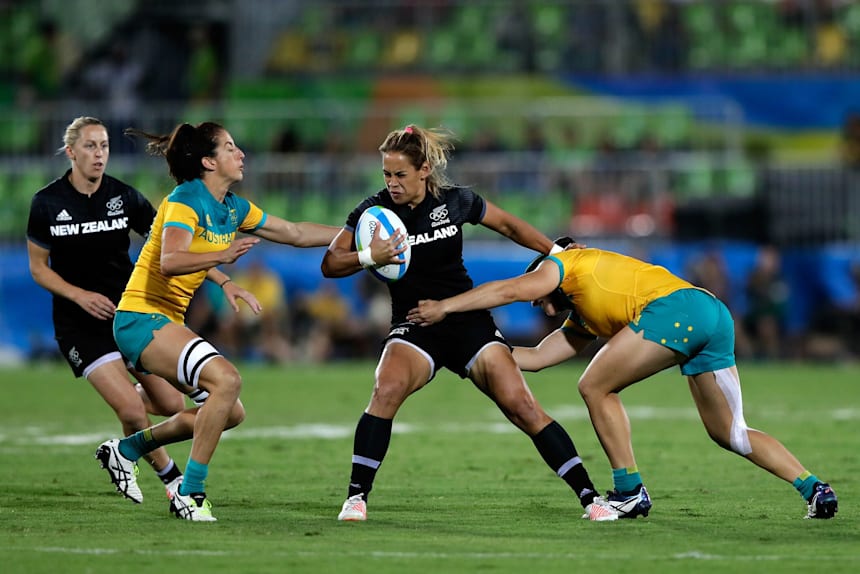
8 August: Australia’s women make Olympic rugby history
In winning the first ever rugby sevens gold medal and the first in the sport since 1924, Australia lived up to their status as the team to beat in the women’s competition, going down in the history of a game that was very much in the spotlight in Rio. The leading force in the 2015/16 World Rugby Women’s Sevens Series season, having won three of the five events to land the overall title, the Australians are also playing an instrumental role in taking the game forward, in all its forms. Their victory on the big stage at Rio 2016 should provide a huge boost to rugby Down Under and around the world.
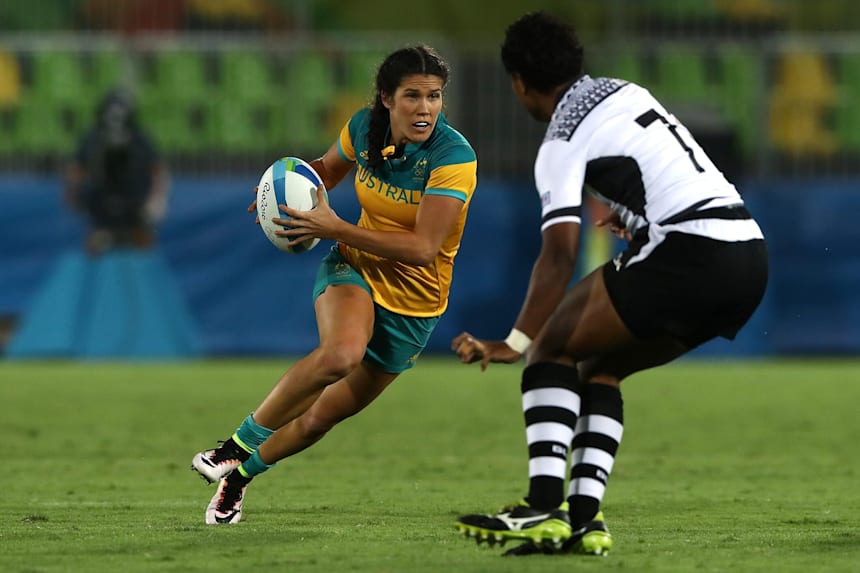
Spearheaded by Charlotte Caslick, one of the stars of the Olympic competition, the Australians secured gold with 24-17 defeat of old rivals New Zealand. “It’s amazing. I feel so proud,” said team captain Shannon Parry. In reaching the final, the Australians topped their pool, beat Spain 24-0 in the quarter-finals and Canada 17-5 in the semis. For their part, New Zealand enjoyed an equally comfortable group phase before seeing off the USA 5-0 and Great Britain 25-7.
On top of their game
Showcasing their superior organisation and skills against the New Zealanders, the Australians opened the scoring in the final, with Caslick and the fleet-footed Ellia Green running in four tries between them in the first half, and Evania Pelite and Emma Tonagato adding a try apiece in the second.
Second in the world this year, having reigned supreme on the global sevens circuit between 2012 and 2014, the Sevens Sisters were unable to make their weight advantage count against the Australians. Though Kayla McAlister and Portia Woodman replied with three tries between them, their individual brilliance was not enough to win the day. “We’ve made a little bit of history with this silver medal. It’s a big achievement for us, even if it’s not what we came for,” said Woodman, the competition’s top try-scorer with 11.
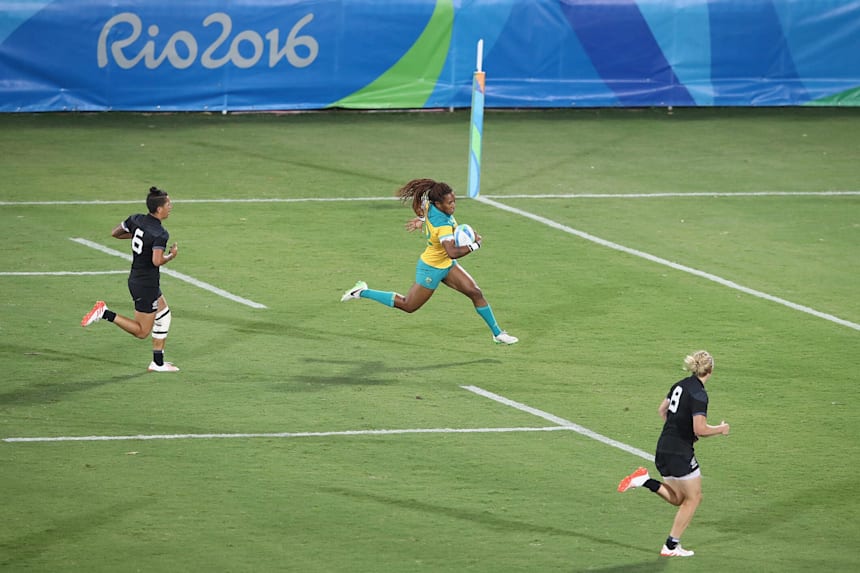
Elsewhere, there were few surprises. The third-strongest force in women’s sevens this year, Canada took bronze with a 33-10 defeat of Great Britain, while the USA beat France 19-5 to secure fifth place. Encouraging displays by hosts Brazil, who have now cemented their place on the global circuit, and Kenya, revealed that the game is taking hold on other continents, even if the final word went to rugby’s traditional powerhouses.
11 August: Fiji’s artists take their place in rugby’s Olympic pantheon
Fiji’s men’s team made national sporting history by winning the country’s first Olympic medal, producing a magnificent display of power and skill to defeat Great Britain 43-7 in the final and secure gold to the delight of their 900,000 compatriots back home. Under huge pressure to come out on top after dominating the global sevens circuit for the last two years, the Fijians did just that, marking the 60th anniversary of the island nation’s first appearance at the Games, at Melbourne 1956, in the best possible style. In doing so, they played a full part in ensuring a successful return for rugby after its 92-year absence from the Olympic programme.
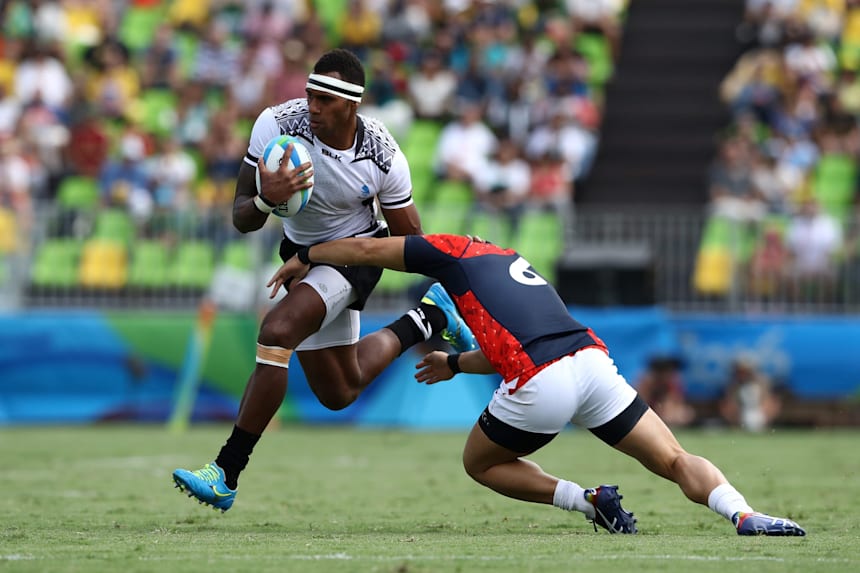
Physically imposing and exceptionally gifted, the Fijians never looked like succumbing to the pressure that comes with being the world’s No1-ranked team, lighting up the tournament with their breathtaking offloads and sheer range of skills. Producing a level of artistry beyond the reach of their opponents, Fiji won each of their games with something to spare and enraptured the fans. Somewhat ironically, their success had much to do with their English coach Ben Ryan, who took charge of the team in 2013. A hero in the Pacific nation, Ryan has been successful in getting his players to fulfil their enormous potential and has made the most of the resources at his disposal, laying down new standards and taking the team to the pinnacle of world sevens.
An unstoppable force
Speaking before the gold medal match, Ryan said: “Let’s play with freedom and be uninhibited for what is the biggest game of our history.” His players executed his instructions to the letter, scoring five superb answered tries as they romped to a 29-0 half-time lead. Powerless to halt the Fijian steamroller, the British had nothing but pride to play for after the restart, and achieved a measure of consolation when Dan Norton went over the line. The Fijians had a few tricks left up their sleeves, however, and ran out emphatic winners. When the final whistle went, it was greeted with ecstatic celebrations and a few tears.
A professional 15-a-side player with RC Toulon in France’s Top 14, Fiji back Josua Tuisova described Rio 2016 as the high point of his career: “I’m so happy. I want to dedicate this win to my family in Fiji. I’m really grateful for the support I’ve had from everyone. This gold medal means a lot to me and to everyone in Fiji. This is a moment that’s been a long time in the making.”
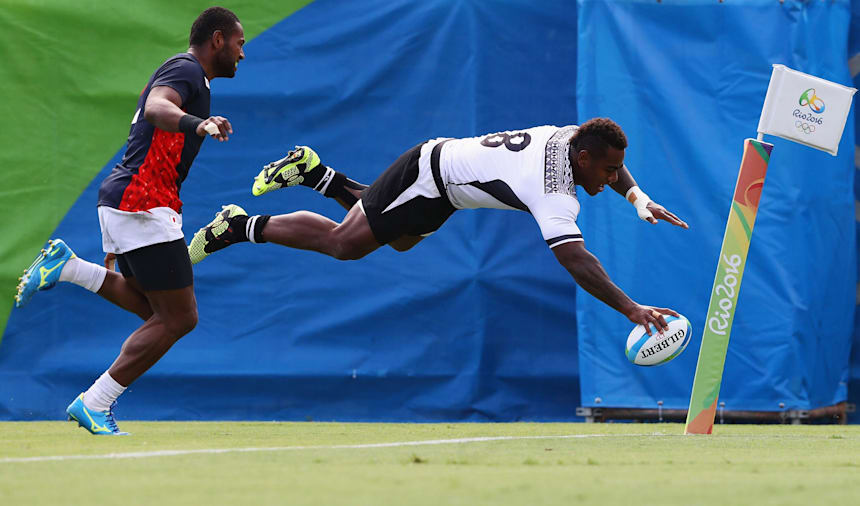
The Rio 2016 sevens final brought life to a halt in the Pacific island nation, over 13,500 kilometres away from Brazil, though with Fiji putting on such a dominant display against their British opponents, the first celebratory fireworks were lit well before the final whistle sounded. Seized with the same emotion as the rest of the nation at its first Olympic medal of any description, the country’s prime minister, Voreqe Bainimarama, said: “Fijians around the world will be rejoicing. Never has Fijian spirit been so high and never before have we been such a great nation.” When their rugby heroes returned home on 21 August, the proud inhabitants of the island of Viti Levu and the capital Suva turned out in force to give them a welcome they will always remember.
Japanese promise
Britain’s silver was excellent reward for their fine tournament and was made all the more noteworthy by the fact that it was achieved by a scratch team, comprising English, Welsh and Scottish players who normally compete against each other on the international circuit. The highlight of their campaign came in the semi-finals, when they edged to a 7-5 win over a South Africa side expected to challenge Fiji for gold.
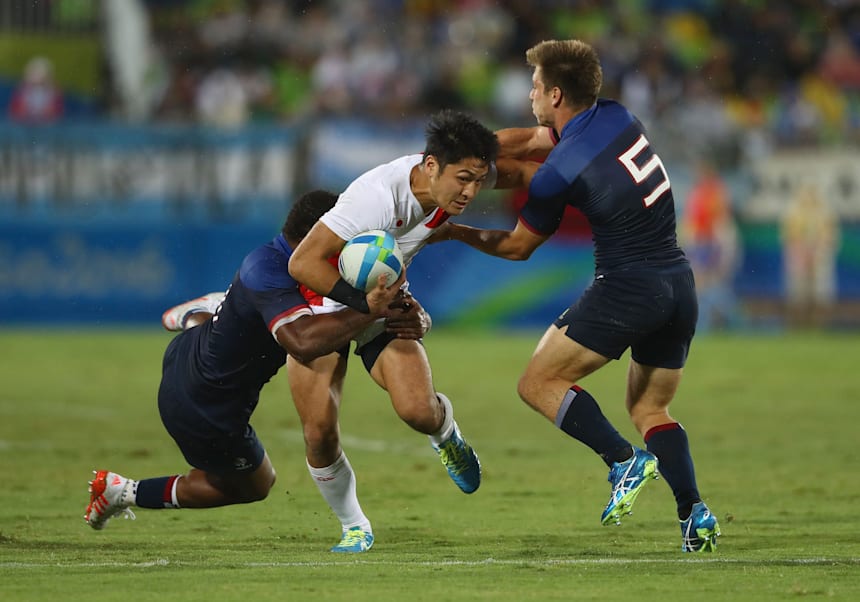
Aside from the magical Fijians, the inaugural men’s Olympic sevens tournament will long be remembered for Japan’s stirring run. Just as their 15-a-side team did at the 2015 Rugby World Cup, the Japanese impressed everyone before running out of steam in the bronze medal match against the South Africa and going down to 54-14 defeat. Regulars on the international sevens circuit, Lomano Lemeki and his team-mates showed no little skill, organisation and physical prowess in serving notice of their intentions next season and of the all-round ability of Japanese rugby, which will hope to excel once more in hosting the World Cup in three years’ time and the next Olympics in Tokyo in four.